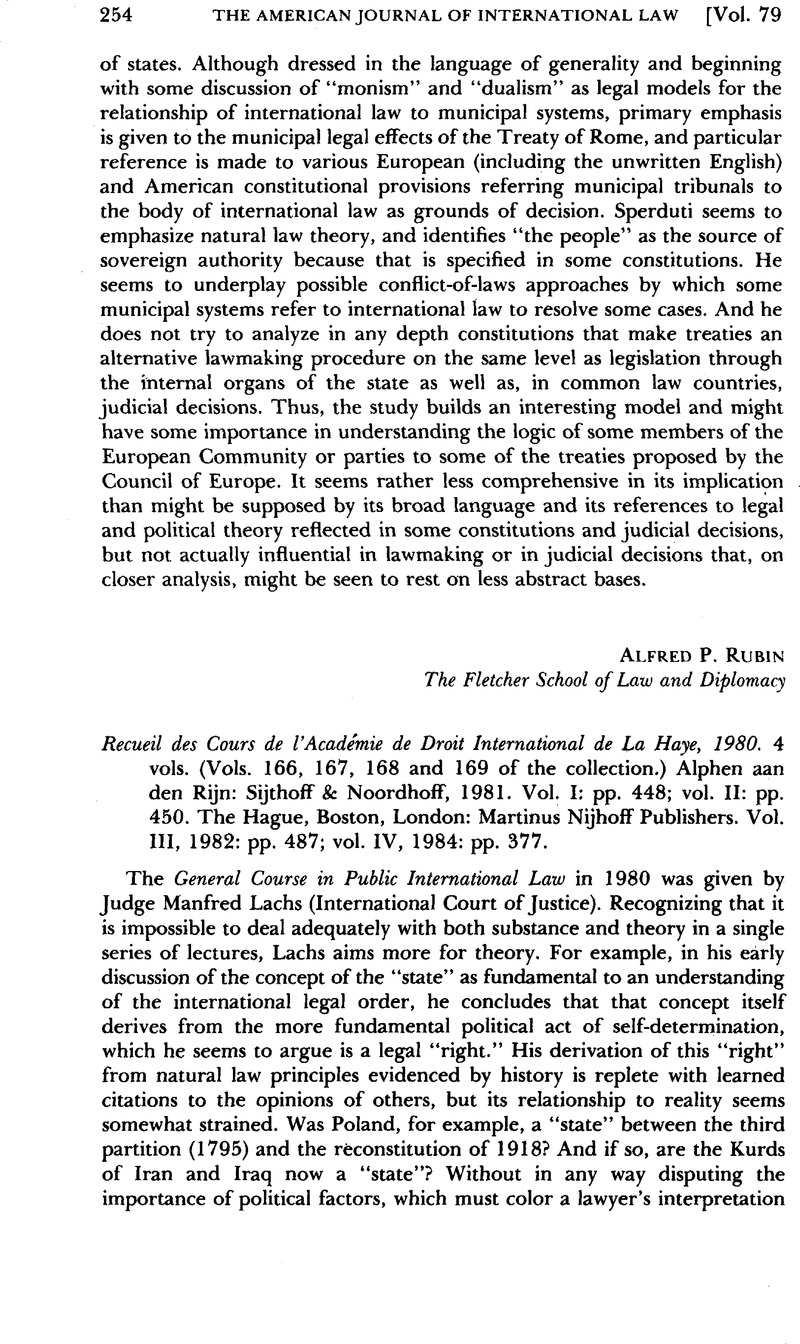No CrossRef data available.
Article contents
Recueil des Cours de l’Académie de Droit International de La Haye, 1980. 4 vols. (Vols. 166, 167, 168 and 169 of the collection.) Alphen aan den Rijn: Sijthoff & Noordhoff, 1981. Vol. I: pp. 448; vol. II: pp. 450. The Hague, Boston, London: Martinus Nijhoff Publishers. Vol. III, 1982: pp. 487; vol. IV, 1984: pp. 377.
Published online by Cambridge University Press: 23 March 2017
Abstract
An abstract is not available for this content so a preview has been provided. Please use the Get access link above for information on how to access this content.

- Type
- Book Reviews and Notes
- Information
- Copyright
- Copyright © American Society of International Law 1985
References
1 For example, Sir Thomas Stamford Raffles, the “imperialist” who established Singapore as a British colony, abolished slavery there essentially because of his deep feelings about free trade. S. Raffles, Memoir of the Life and Public Services of Sir Thomas Stamford Raffles 46–47 and appendix, at 12 (1830).


